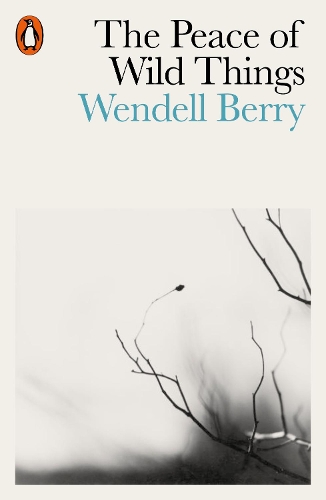
The Peace of Wild Things: And Other Poems
(Paperback)
Publishing Details
The Peace of Wild Things: And Other Poems
By (Author) Wendell Berry
Penguin Books Ltd
Penguin Books Ltd
22nd February 2018
22nd February 2018
United Kingdom
Classifications
General
Non Fiction
Modern and contemporary poetry / poems
811.54
Physical Properties
Paperback
144
Width 130mm, Height 198mm, Spine 12mm
132g
Description
Joyous, sensuous, radical- a slim volume of Wendell Berry's best-loved poems to console and delight If you stop and look around you, you'll start to see. Tall marigolds darkening. A spring wind blowing. The woods awake with sound. On the wooden porch, your love smiling. Dew-wet red berries in a cup. On the hills, the beginnings of green, clover and grass to be pasture. The fowls singing and then settling for the night. Bright, silent, thousands of stars. You come into the peace of simple things. From the author of the 'compelling' and 'luminous' essays of The World-Ending Fire comes a slim volume of poems. Tender and intimate, these are consoling songs of hope and of healing; short, simple meditations on love, death, friendship, memory and belonging. They celebrate and elevate what is sensuous about life, and invite us to pause and appreciate what is good in life, to stop and savour our fleeting moments of earthly enjoyment. And, when fear for the future keeps us awake at night, to come into the peace of wild things.
Reviews
Wendell Berry is the most important writer and thinker that you have (probably) never heard of. He is an American sage -- James Rebanks
Our modern-day Thoreau ... He is unlike anybody else writing today -- Andrew Marr * New Statesman *
The poet laureate of America's farmland * Observer *
Wendell Berry's poems have a real twinkle in their eye in the face of a dark world -- Colum McCann * Atlantic *
He has returned American poetry to a Wordsworthian clarity of purpose * Baltimore Sun *
Author Bio
'A farmer of sorts and an artist of sorts,' Wendell Berry is the author of more than fifty books of poetry, fiction, and essays. He has received fellowships from the Guggenheim, Lannan, and Rockefeller foundations and the National Endowment for the Arts, and also the Dayton Literary Peace Prize, the Cleanth Brooks Medal for Lifetime Achievement, and the National Humanities Medal. For more than forty years, he has lived and farmed in his native Henry Country, Kentucky, with his wife, Tanya, and their children and grandchildren.
